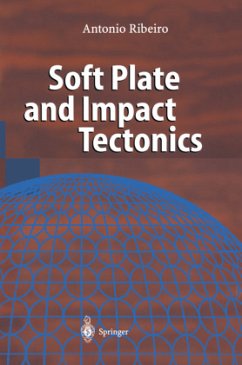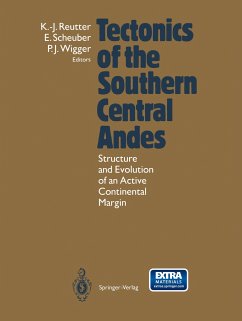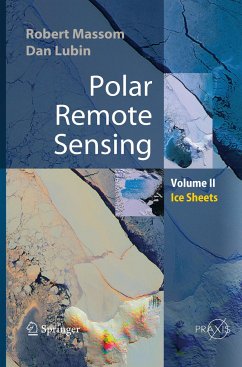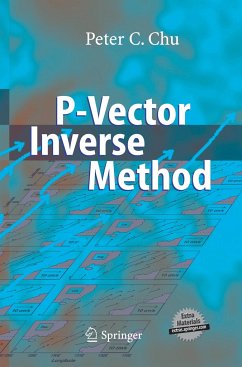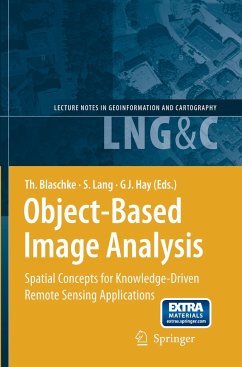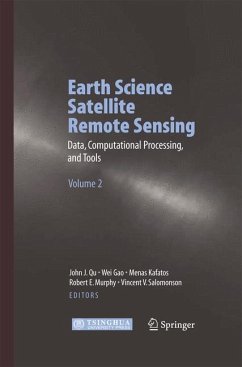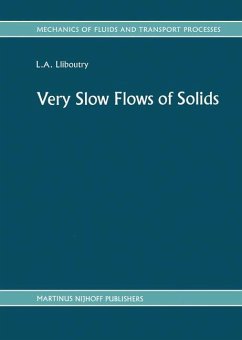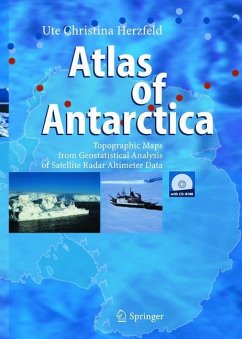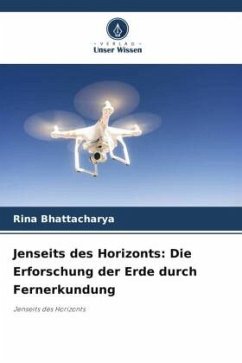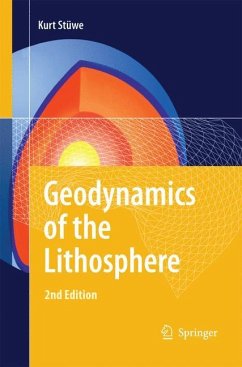
Geodynamics of the Lithosphere
An Introduction
Versandkostenfrei!
Versandfertig in 6-10 Tagen
65,99 €
inkl. MwSt.
Weitere Ausgaben:

PAYBACK Punkte
33 °P sammeln!
The large scale structure of the earth is caused by geodynamic processes which are explained using energetic, kinematic and dynamic descriptions. While "geodynamic processes" are understood to include a large variety of processes and the term is used quite loosely, the methods of their description involve well defined fields. Energetic descriptions are involved with distribu tion of energy in our planet, typically expressed in terms of heat and tempera ture. Kinematic descriptions describe movements using velocities, strains and strain rates. Dynamic descriptions indicate how stresses and forc...
The large scale structure of the earth is caused by geodynamic processes which are explained using energetic, kinematic and dynamic descriptions. While "geodynamic processes" are understood to include a large variety of processes and the term is used quite loosely, the methods of their description involve well defined fields. Energetic descriptions are involved with distribu tion of energy in our planet, typically expressed in terms of heat and tempera ture. Kinematic descriptions describe movements using velocities, strains and strain rates. Dynamic descriptions indicate how stresses and forces behave. In the field, we document only the consequences of geological processes. The underlying causes are much harder to constrain directly. Nevertheless, if we want to explain the tectonic evolution of our planet, we need to interpret these causes or: "driving forces" . For this, we need to find a dynamic description of geological processes that is consistent with our observations. Our descriptions relate causes and consequences - tectonic processes with field observations. In many cases, we will use equations as a concise form to describe processes and observations in nature. As we will be dealing mostly with large scale tectonic questions, the observations that we shall use are also on a large scale. For example, we shall use observations on the elevation (Fig. 1. 1) and heat flow of mountain ranges, the thickness of continents and the water depth of the oceans.





